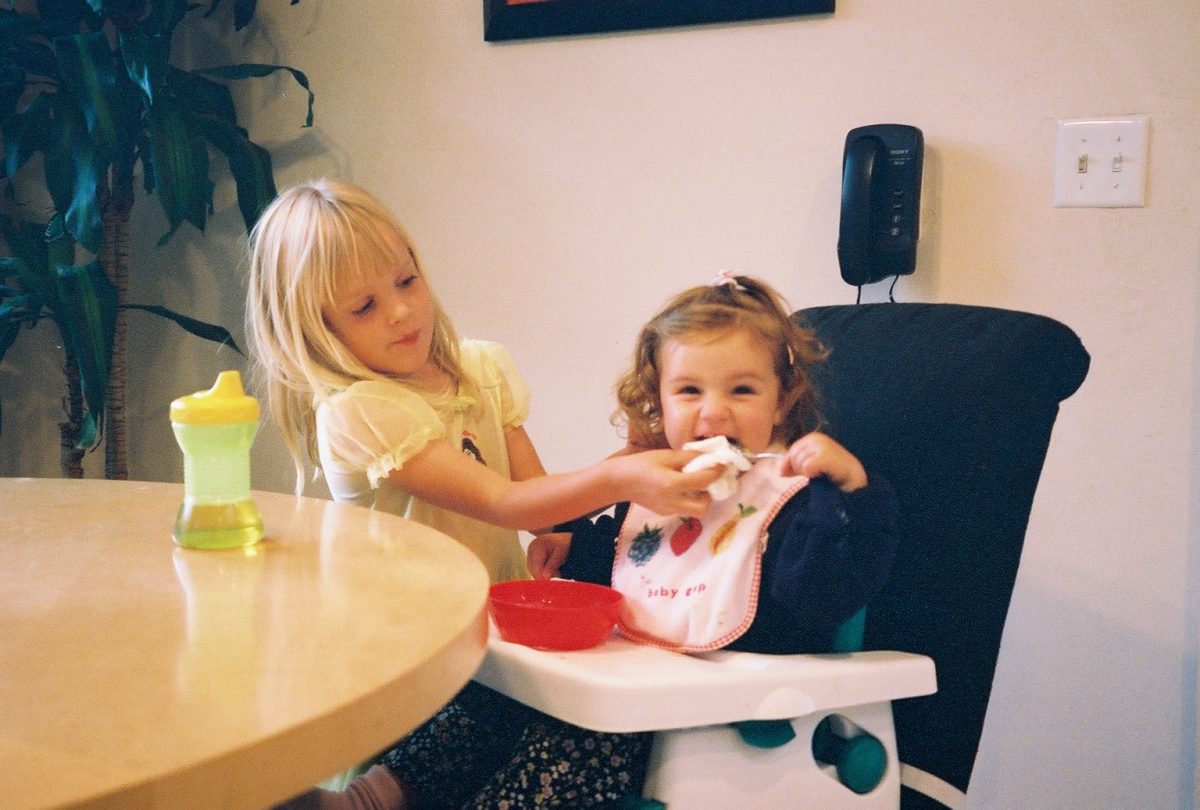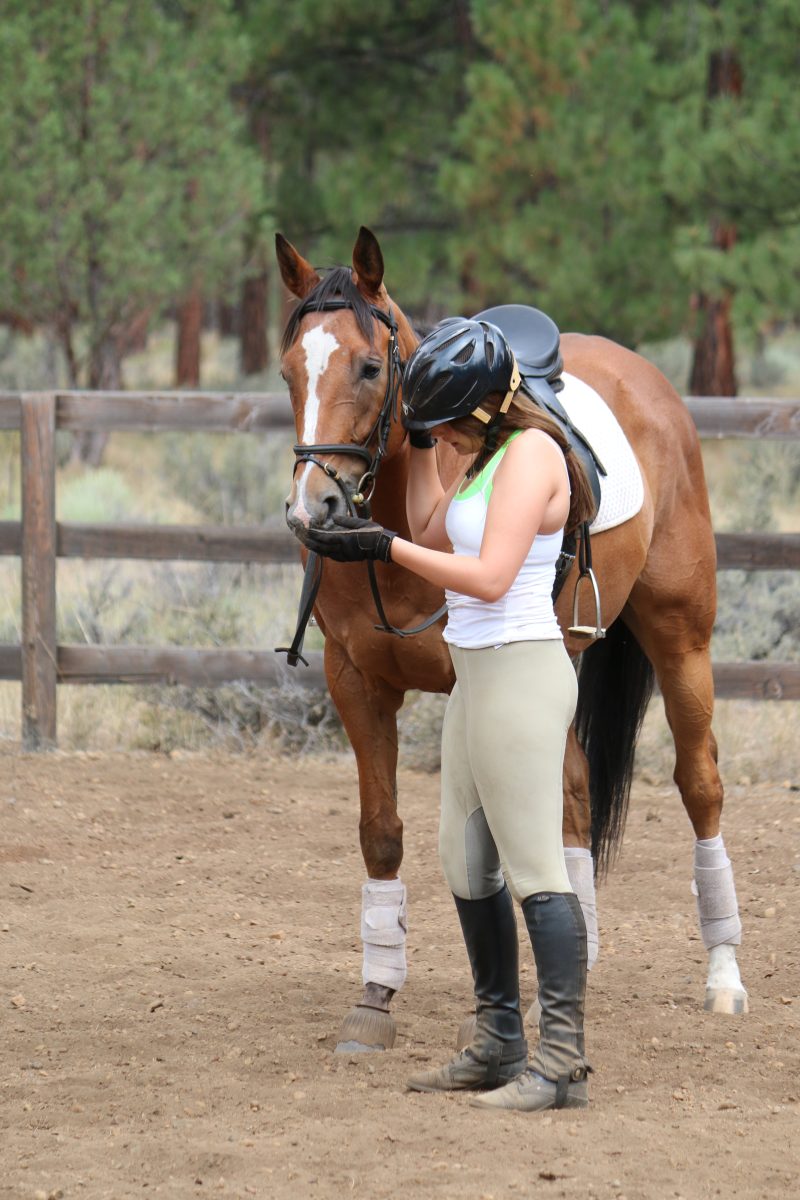The first merging headline read as ‘two women, teen found dead in Rancho Santa Fe home.’ The media scarcely presented any facts; nobody knew or understood what had happened. As the days followed, the new headlines emerged, each one more enrapturing and detailed than the last. They bided for people’s attention, luring them in with grisly words and shocking factors: ‘Bodies Identified in Murder Suicide’, ‘Aunt Stabbed Rancho Santa Fe Murder Victims, Killed Self’, -and the one that gets me the most- ‘Hannah Arya: Who killed Rancho Santa Fe Teen and Why?’ There it was– the big, exciting headline. But Hannah Arya was not just a name in a headline; she was my little sister and for over a month in the summer of 2016, she was clickbait.
Humans are innately sensationalists, but sensationalism is perpetuated even further by capitalism in order to make a profit. Dr. Sunny Emmanuel Udeze, a lecturer in the department of mass communication at Enugu State University, says, “Sensationalism is seen as a type of editorial bias in mass media in which events and topics in news stories are over-hyped to increase viewership or readership figures.” Journalism professor, Mitchell Stephens, also notes that, “sensationalism is unavoidable in news because we humans are wired, probably for reasons of natural selection, to be alert to sensations, particularly those involving sex and violence.”
In an era after ‘yellow journalism,’ media outlets follow a business model to sell, which relies on utilizing excite or shock even when it might be stretching the truth. This is market-driven journalism. According to the former prime minister of Great Britain, Tony Blair, as stated in his 2007 resignation speech, this turn of the media is due to, “the changing context in which communication takes place in the 21st century, [leading] to a more intense form of competition.” The result? An increase in demand to make an impact– no matter the price.
I must admit, I heavily bought into the sensationalist society. I used to devour headline news. The more obscene, absurd and unethical they were, the more they intrigued my mind to soak up every last detail. I loved reading about crime because it was exciting, but it was always at a distance; never would I be involved in something so terrible as an untimely death or school shooting. But suddenly with my sister’s death, I wasn’t just an onlooking spectator greedily reading every last detail to curb my hungry curiosity. It was a part of my life on display for everyone to see. Headline stories aren’t just news; they’re people’s livelihoods, and I didn’t realize this until I was fully submerged and drowning in the reality of it all.
This sensationalism has led society to an era of desensitization. We are no longer shocked to read “mass shooting” in the news, and we almost expect a majority of circulating stories to have some element of crime, blood or devastation. In 2018, the United States had 323 mass shootings, according to the Gun Violence Archive which defines a mass shooting as an incident in which four or more people, not including the suspect, are shot and/or killed. By the end of the year, no one was really shocked to read that there was another mass shooting. Devastated–yes. But surprised? Unfortunately, no. When I read the news of the Thousand Oaks shooting in November, I cried. I was worn down from reading traumatic incident after traumatic incident, and the fact that I almost went to Pepperdine– that in some alternate universe, it would have been my community affected by this tragedy– had me shaken. But, I still wasn’t surprised. Mass shootings almost feel like the new norm.
According to Dr. Udeze, sensationalism in media includes, “reporting about generally insignificant or trivial matters and events that do not influence overall society.” This is capitalizing on the fact that humans love to slow down while driving by a car accident and splashing it across the front page of a priced newspaper. If we can’t get information first hand, we’ll pay to read about it. How much of this information is actually vital to a common individual’s immediate existence? Do we all really need to know that “teenager, 17, killed herself” or “7 dead in gruesome accident on I5?” Gaining this information is not worth invading another family’s personal life.
My sister’s story wasn’t just words on a screen. The media invaded our lives. At the vigil for my sister, news outlets had set up their cameras. A big, flashy 10News San Diego read on the side of the white van, parked outside the church. Being interviewed was far from what my family and I were prepared or willing to do. At the time of my family’s most vulnerable state, they wanted information. For whom? Who else did the death of my sister affect more than my family? Why did the world deserve to know? I didn’t understand why before the vigil my father had prepped my older sister and I for answering questions from the media. It had seemed silly. Now I understand my father wanted to control the narrative; he didn’t want the media to take anything we said, twist it around and run with it.
Nonetheless, when a newswoman asked if I could be interviewed, I wanted to scream at her. The phrases my father had told us to say– the “we fully believe she is in heaven” and “we have no further information to share” — was muddled behind my anger. All I wanted was to question why she needed to report on a moment so personal to my family. I didn’t want to be a next-day headlining story: teenage sister of slain is traumatized over untimely death. Then, there were other people: the neighbors who commented on what they thought happened. Someone had said they heard two pops. I ask, how could there have been? It was a knife. It was misinformation, but the media station didn’t bother investigating further or fact checking. They had what they needed for the time being: a grim, exciting story.
On June 29, a couple days after Hannah was pronounced dead, I opened the DailyMail Snapchat story. My father had advised us to avoid the news and to not seek out information, not only to protect our wounded souls, but to keep us away from the misinformation saturating the internet. I wasn’t expecting anything about my sister’s death to be on their story. I mean, it was Snapchat. Why would this story be significant enough to be written? A few clicks in and there it was: “Boarding school girl, 15, her aunt and a family friend die in ‘murder-suicide’ in America’s 42nd richest zip code ‘following dispute over her father’s will after he died of lung cancer’.” I was woefully unprepared. Every word in the headline was like a knife into my own body, a reminder of my recent devastation. I was also angry. The media wanted to capitalize on the fact that it took place in one of the wealthiest places to live in the United States. I didn’t want to know how much the house cost. That wasn’t what was going through my mind, what mattered. It was where my little sister was found, lifeless. Where her best friends stood locked outside the door, helpless. Because once upon a time, there was a happy, vibrant 15-year-old girl living within those walls. A girl who stayed up late to eat ice cream, and begged her sister to take her to the store. A girl that once stuck a block of cheese in the bread box, fell out of a recliner backwards, and never failed to put a smile on my face. A girl that intimidated others with her brilliance and passion, and a girl that had to grow up too fast and met her end too soon.
But the media didn’t know this about her. They only cared about her because she died in a most gruesome manner. They only cared so long as there was a story to sell papers. Dr. Udeze says, “News is perhaps seen as a commodity. Although it is seen by many as ‘the truth,’ news is a carefully constructed media product.” A product. And my sister was the manufactured advertisement to sell it. The media didn’t care that I spent an entire night vomiting in a hotel bathroom due to emotional distress from seeing her dead body. They didn’t care that no one in my family had an appetite for months, that I lost an unhealthy amount of weight, that I couldn’t retain any new information. I was terrified I was going to fail out of college– my life was falling apart, and the only thing society wanted to know was how she was killed. People wanted to see photos of the bloody footprints on the kitchen floor, wanted to know just how many times she was stabbed. They wanted to be satiated; I just wanted to stay sane.
I had never had a panic attack before she died, but now I accept them as a normal occurrence. I will never forget my first panic attack. My family went to California to retrieve Hannah’s body, and we went to the Oceanside morgatory where she was being held. She was laying on a table, covered up to her neck in clothes because of her wounds. Her eyes were sealed with lash glue and they had beautified her face. I watched my step mom stroke Hannah’s head, crying, for about five minutes before my vision began to blur. A wave of nausea drowned me and the only words I could get out were, “I think I’m going to throw up.” My dad quickly sat me in a chair, handed me water, and I calmed down. I thought I was okay after, but that was only the beginning. I was suppressing my emotions, and my body couldn’t battle it anymore. In the car on our way back to Oregon, my body was through fighting. My fingers, hands and feet started tingling. My vision was blurring again and this time I couldn’t even muster the strength to tell my parents I was going to throw up. It just happened. We found the nearest hotel to stop for the night. I was throwing up for hours, crying for even more. I couldn’t lay in bed, so I slept on the bathroom floor. My stepmom told me she was moments from hospitalizing me because of how much fluid I lost. I was a mess, and I’m still a mess. Sometimes, I’m afraid to read the news because of how visceral it can be. The stories with significant trauma trigger tears. I wish I could prevent it; I don’t want to feel vulnerable all the time, but it’s something I can’t escape.
The media made my family’s trauma a spectacle, disregarding their impact on those lives directly involved. I wish I could go back to Hannah’s vigil and interview with the newswoman. I would tell her how reporting on the event would have a lasting impact on my family, how that anyone could easily find a video of my family crying at the service because she was there. No one should be able to observe our pain, especially from such a disassociated perspective. My family needs to heal, not have a permanent record of her death for everyone to read.








![[Photo Courtesy of the Lara Family]
Ruben embraces his beloved childhood goat, Katrina.](https://ethos.dailyemerald.com/wp-content/uploads/2025/05/katrina-1-1060x1200.jpg)


